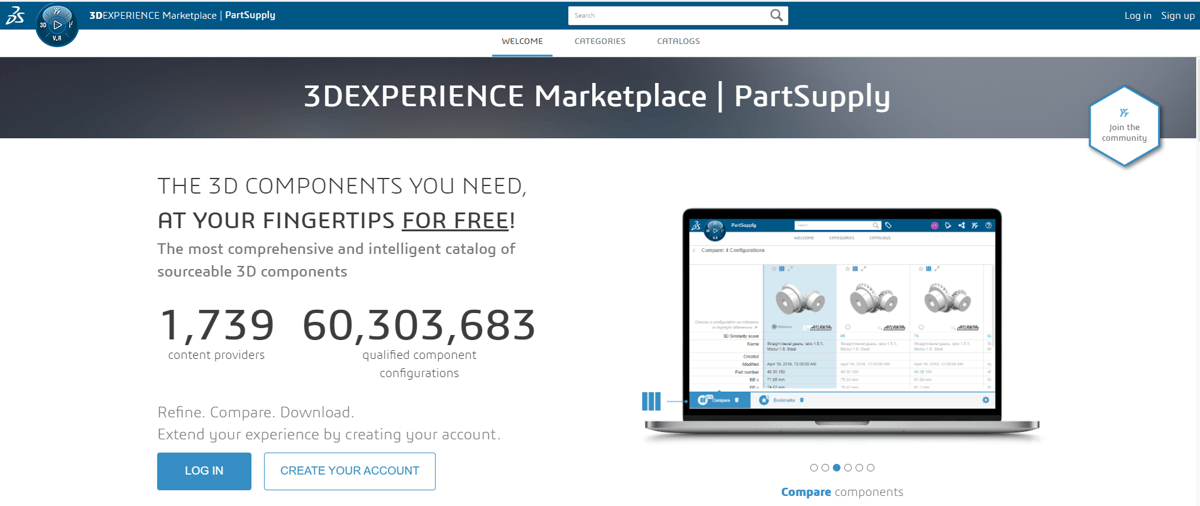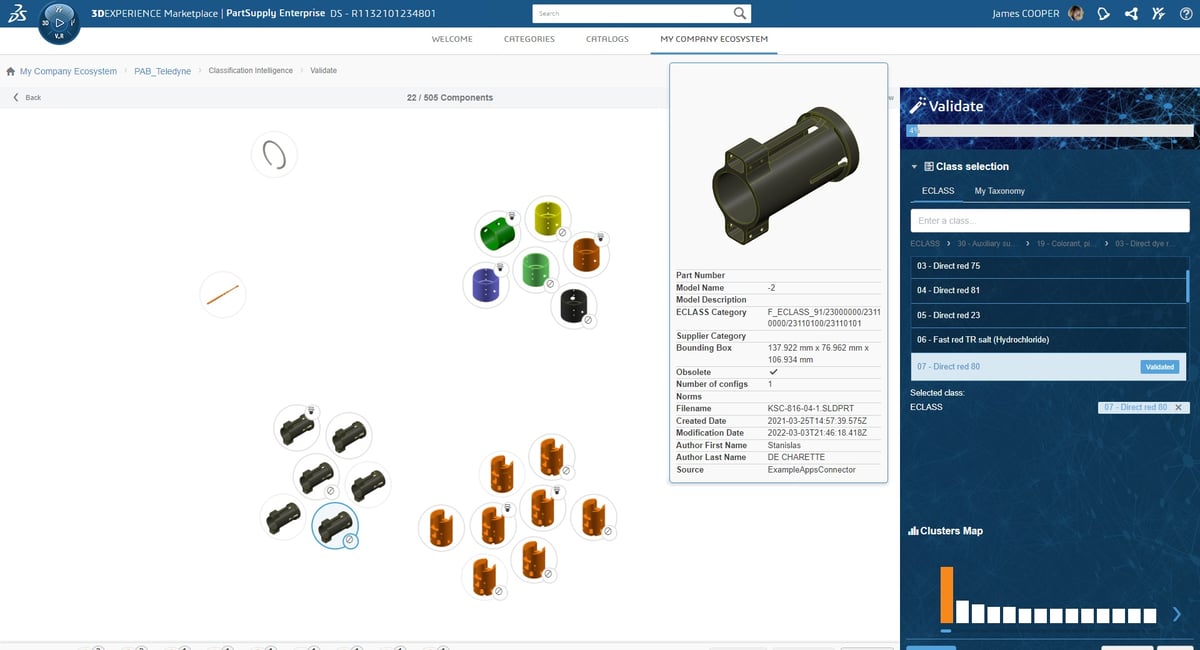The process of designing and manufacturing industrial parts requires efficiency and diligence, as even the slightest disruption or flaw can throw the entire process off track. Various factors are critical to the success of a business or manufacturer, from part verification to supply chain health.
Digital B2B marketplaces have helped streamline much of these potential issues for manufacturers and businesses across the globe. These platforms enable businesses to source products and services directly, eliminating overhead costs and streamlining production. Moreover, digital B2B marketplaces enable businesses to compare products and suppliers to satisfy their unique business goals.
PartSupply, founded by Dassault Systèmes, a global leader in solutions for 3D product design and manufacturing, is a marketplace that aims to reduce friction and overhead for manufacturers and product developers. Integrated into the 3DEXPERIENCE Marketplace and part of the Sourcing & Standardization Intelligence portfolio, PartSupply is a comprehensive, AI-powered catalog of sourceable components and their respective 3D files – free of charge for all businesses.
The platform is effectively a one-stop shop of tens of millions of qualified component configurations, all of which are verified and can be downloaded, tweaked, and ultimately manufactured. By making parts readily available to customers, PartSupply has helped manufacturers and product developers save tens of millions of hours of design and engineering time.
Over the last year, PartSupply has seen significant growth for subscribers and number of parts. The marketplace now has more than 60 million parts available to clients, while the number of content providers has skyrocketed from 1,000 to 1,700.
This expansion in parts and providers comes on the heels of new functionalities that make PartSupply the go-to catalog for sourcing industrial component designs. Let’s take a look at the most recent developments.

PartSupply’s New Functionalities Are Key Differentiators
With PartSupply, businesses can gather relevant stakeholders on a single platform that enables real-time collaboration, streamlining the entire design and manufacturing process.
PartSupply allows businesses to standardize parts across the workflow, effectively reducing time-to-market by narrowing down the selection process. It also reduces risk by ensuring quality compliance with proven parts. Additionally, it reduces the time typically spent on searching for and testing parts from various catalogs.
Aside from its vast library of components, businesses can leverage PartSupply to develop partnerships with suppliers and even improve their own supply chain performance. Already a leader in the field, Dassault Systèmes has continued to refine PartSupply with new functionalities that make it the gold standard for digital component catalogs.
One area that PartSupply has continued to improve is in breaking down data silos. The platform’s indexing technology is crucial in ensuring that clients have all the data they need in one place. PartSupply customers have access to technical characteristics, geometrical features, purchase orders, business attributes, and supplier information in a single location.
Bridging together semantic data with the 3D signature of the part makes it easier to validate the component. As a cloud-based service, PartSupply synchronizes all component data points and files, including 3D components, drawings, pictures, PDF, and CSV properties mapping, providing designers with a comprehensive look at these parts in a design environment.
PartSupply also offers seamless integration with all Dassault Systèmes CAD systems, such as CATIA and SOLIDWORKS. This enables flexibility and versatility for product designers and manufacturers, especially when downloaded 3D components need to be tweaked or verified.
Another major offering from PartSupply is its AI-powered component signature and identification process. The platform utilizes 3D Signature to identify the category of its vast range of parts, including completeness, data quality, and multi-language description.
3D Similarity allows businesses to locate a part without knowing its characteristics. It also functions as a comparison tool for the geometrical features of a part, helping users to confirm the right part is selected.

PartSupply has made great strides in part classification through its 3D and Semantic-based active learning functionality. With it, customers can classify and identify the properties of their components and enrich knowledge of the content.
Clustering technology is another key differentiator that marks PartSupply’s capabilities. With this machine learning-driven function, users can discover and group similar components based on characteristics like 3D shape, certain geometrical features, as well as Semantic criteria.

Discover PartSupply here! To learn more about PartSupply and how it can redefine how your business operates, visit the website here. Download the eBook to find more information and use cases for PartSupply.